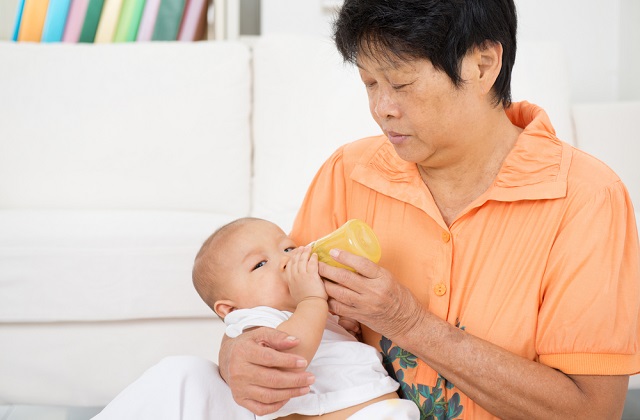How can you help your baby learn to talk?
Learning to talk is a process that starts even before babies are born. In the first three years after childbirth, your baby's brain is rapidly developing and it is also the critical period for your baby's speech development.
Baby's Speech Development Milestones
Birth to 3 Months: Your baby listens to your voice, watches your face as you talk, he coos and gurgles and tries to make the same sounds you make.
Many infants prefer a woman's voice over a man's. Many also prefer voices and music they heard while they were still in the womb.
3 Months to 6 months: Your baby is learning how people talk to each other. At 6 months, your baby begins babbling with different sounds.
For some babies, they are able to respond to their own names at the end of the sixth month.
6 months to 9 months: Your baby will play with sounds. Some of these sound like words, such as "baba or "dada".
9 months to 12 months: After 9 months, baby can understand a few basic words like "no" and "bye-bye." He also may begin to use a wider range of consonant sounds and tones of voice.
12 months to 18 months: Babies begin to use words. He will give you a toy if you ask for it. He will ask you for help by pointing or looking at it and babbling.
18 months to 2 years: Babies begin put words together such as "Mama milk".
2 years to 3 years: By the time your baby is age 3, his or her vocabulary expands rapidly. By 36 months he will be able to answer more complicated questions such as, "What do you do " He will do more and more pretend play, acting out imaginary scenes.
How can you help your baby learn to talk?
Sing to your baby: This can be done even before your baby is born. Before your baby is born, he is able to hear you.
Listen and repeat: When your baby babbles, imitate the sounds. Your baby will try to imitate sounds you are making and to vary pitch and tone to match the language heard around him.
Imitate: Your baby loves you voice. And when you talk to him it helps speech to develop. The more you "baby talk" with him, the more your baby will keep trying to talk.
Elaborate: If your baby points to the table and makes noise, don't just give him more noodles. Instead, point to the noodles and say, "Do you want some more noodles? These noodles taste good with cheese, don't they?"
Narrate: Talk about what you're doing as you wash, dress, feed, and change your baby -- "Let's put on these blue socks now" or "I'm cutting up your chicken for you" -- so your baby connects your speech to these objects and experiences.
Pretend Play: Encourage children to play, pretend, and imagine out loud to develop verbal skills as they become toddlers. Do lots of pretend play. Acting out stories and role-playing create rich opportunities for using, and learning, language. Engage your child in pretend play. You can talk on a toy phone, feed the dolls, or have a party with the toy animals.
Read : Read to your child. Ask him to point to and tell you what he sees.
Ask your child questions about the pictures in books, give him time to name things in the picture.
Open-ended questions: For your 2 years old to 3 years old child, ask open-ended questions that don't have a "yes" or "no" answer. This helps him develop his own ideas and learn to express them.
It takes a village to raise a child !
Join our WhatsApp Parenting Chat Groups By Area in Singapore.









